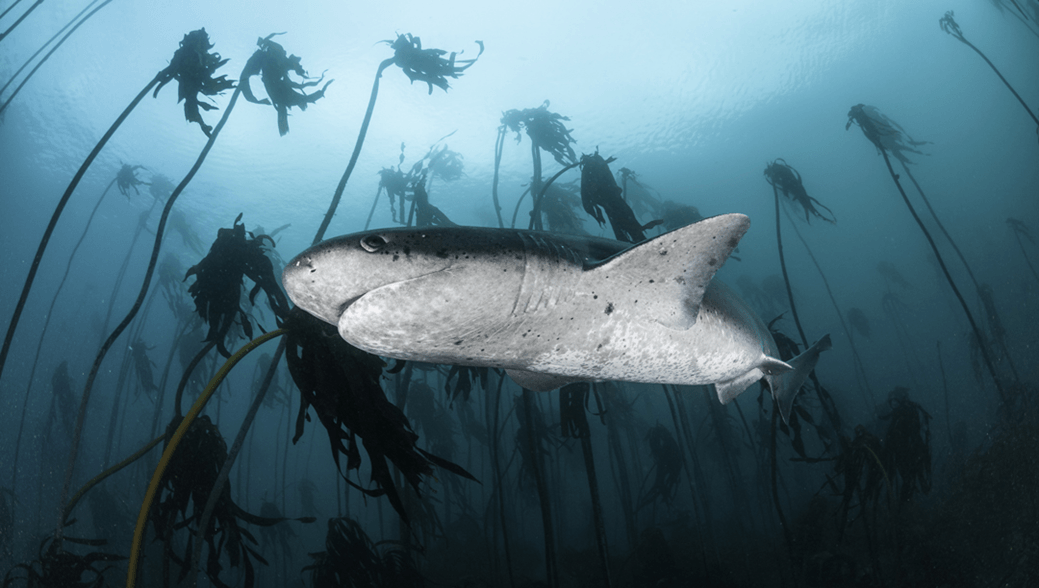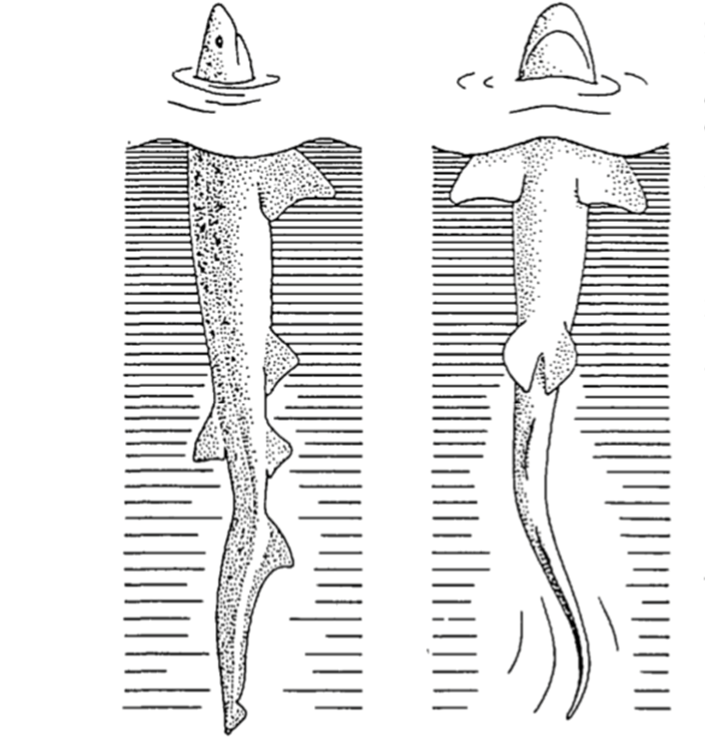The Forgotten Apex Predator.
The Broadnose Sevengill shark (Notorynchus cepedianus), an otherworldly ocean creature from an ancient lineage, isn’t one of the charismatic megafauna species that you see in documentaries or on conservation posters and is often overlooked as an important marine apex predator.
Throughout the world’s oceans there has been a decline in top-level predatory sharks due to anthropogenic threats such as over-fishing and habitat change. Increased human-shark interactions in coastal ecosystems were seen during the 20th century which lead to the public perceiving sharks as dangerous, resulting in near extirpation of some coastal shark species via hunting. It has been suggested that the loss of apex predators is humankind’s most pervasive influence on the natural world, with far reaching ecological effects via trophic downgrading (Hammerschlag et al., 2019). Sharks play a crucial role in structuring food webs and are key components of healthy, stable ecosystems. Conservation efforts are being made to bring awareness to marine apex predators, but not all species are given the same attention.
The Broadnose Sevengill shark is one of those lesser researched, lesser spoken about species. This kelp-based shark is the only existing member of the Notorynchus genus and, as it’s name implies, is recognisable by it’s seven gills (while most sharks only have five). Despite their deceptively docile appearance, these sharks are versatile predators and are known to target a wide range of prey from squid and fish to smaller sharks, marine cetaceans and even seals. This makes them important apex predators in the coastal ecosystems they frequent and without them the stability and matrix of food webs would be altered. However, there are large gaps in our understanding of their ecology, behaviour and movement patterns globally and they are still classified as “Data Deficient” by the IUCN. Sevengill sharks lack any species-specific management strategies, placing them at risk of overexploitation due to their coastal nature and overlap with intensive inshore fisheries.
It is thought that the success of the Broadnose Sevengill shark as an apex predator can be attributed to its diverse diet and the feeding strategies it employs to catch prey. Close examination revealed how opportunistic and versatile the Sevengill shark can be in exploiting food resources (Ebert 1991). Observations on their feeding behaviour revealed that they use multiple foraging strategies to increase their success, including; quick bursts of speed, ambushing their prey and stealth. Social facilitation, team work between two or more of them, is used to hunt for larger prey. They form a loose circle and then close in on their prey. Spy-hopping has also been observed in certain locations. Sevengill sharks hold their heads above the water and look around. It is thought to be an adaptation to aid in the capture of marine mammals. This behaviour is rare among sharks but has been regularly observed in great white sharks.
False Bay, South Africa, is an aggregation site for both Great White ( Carcharodon carcharias ) and Broadnose Sevengill sharks which together fulfil the role of coastal apex predators. They are rarely seen in the same places and act as allopatric (non-overlapping geographic areas) predators in their respective environments. Great White sharks are listed as endangered and therefore are protected in South Africa, but Sevengill sharks are not. Although both species are essential apex predators and negative trophic cascades would be seen if either species were lost, it is surprising that there are not measures in place to protect Sevengill sharks too. Moving forward, wider research and extensive data collection is required in order to learn more about Sevengill sharks and how best to prevent their decline. Species-specific fisheries management needs to be used in tandem with protected areas to prevent overexploitation of this important coastal predator. If measures are not taken we may have to find out the hard way just how important they were to the coastal marine ecosystems that they live in.
References :
Ebert, D. 1991. Observations on the predatory behaviour of the sevengill shark Notorynchus cepedianus , South African Journal of Marine Science, 11:1, 455-465
Hammerschlag, N., Williams, L., Fallows, M., Fallows, C. 2019. Disappearance of white sharks leads to the novel emergence of an allopatric apex predator, the sevengill shark. Nature
SHARE THIS ARTICLE















